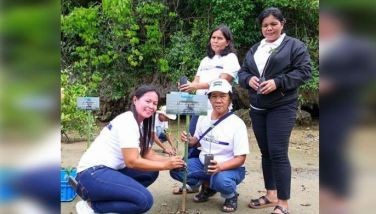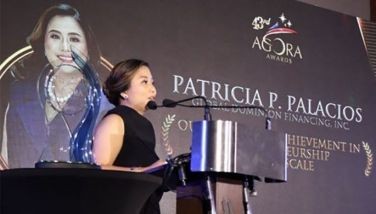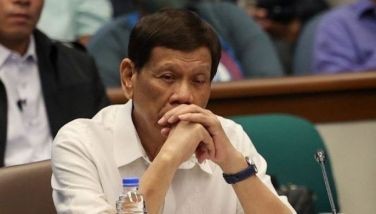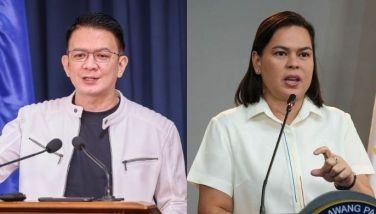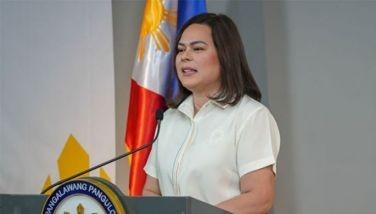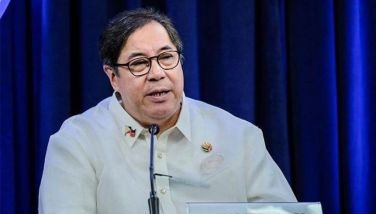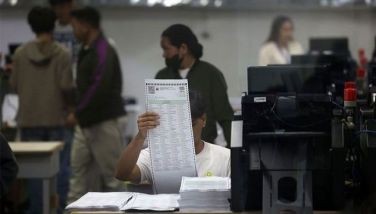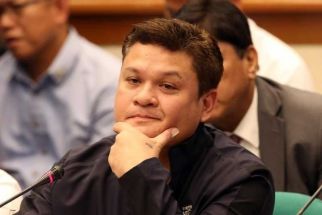Cops, not soldiers, should secure candidates - Ibrado
MANILA, Philippines - Armed Forces of the Philippines (AFP) chief Gen. Victor Ibrado said yesterday he would prefer that the police be given the primary task of securing candidates during the election period to allow soldiers to focus on internal security operations.
“As much as possible we would ask not to serve as bodyguards. The priority should be the police and if there is really a serious case of security (threat) as far as the candidates are concerned, then maybe we can come in, but maybe on a case-to-case basis,” Ibrado said.
He said he would meet with his subordinates and the Philippine National Police leadership to discuss issues pertaining to the deployment of soldiers as bodyguards of politicians before making a formal recommendation to the Commission on Elections (Comelec).
But he said they would be ready to follow orders once it becomes final.
“Because of our mandate, when the Comelec directs us then we have to follow it,” he said.
Army chief Lt. Gen. Delfin Bangit said the other day he would prefer his men to provide overall area security rather than secure a single candidate.
Bangit said he does not agree with the idea of uniformed soldiers joining politicians in political activities.
“Protection is different from projection. If we are allowed to focus on our mandate, then there might not be a need for personal bodyguards anymore,” he said.
At the same time, Bangit said the Reserve Officer Training Corps should be tapped to augment police forces in securing polling places on election day.
Comelec Resolution 8714 allows soldiers to act as bodyguards of politicians facing threats to their lives and safety.
The designation of soldiers as security escorts was the only provision that was changed from the old memorandum of agreement (MOA) signed in 2006 between the poll body and the AFP.
Defense Secretary Norberto Gonzales said a new memorandum of agreement that is being drafted after the issuance of the resolution would put the AFP at the “full disposal” of the poll body “to safeguard the sanctity of the 2010 elections.”
He said it is also intended to help prevent a repeat of the issues that resulted from the 2004 and 2007 elections, such as the “Hello, Garci” scandal.
The old MOA, signed between the Department of National Defense and the Comelec in 2006, prohibits soldiers from escorting candidates and election paraphernalia during elections as well as using camps for polling precincts.
Soldiers under the old agreement are also prohibited from serving as members of the Board of Election Inspectors (BEI).
Government agencies deputized
The Comelec, meanwhile, has deputized the PNP, the National Police Commission and other government agencies to provide security in polling places and to members of the BEIs that will supervise the elections.
Police officers are also enjoined to secure Comelec personnel and representatives while performing their duties whenever a request is made or when required by the poll body.
“Take steps to protect voters from threats, intimidation, coercion, harassment or reprisal,” Resolution 8717 told law enforcers.
The policemen were also directed to enforce regulations against some acts prohibited during the election period or from Jan. 10 to June 9, 2010, including possession of firearms and other deadly weapons.
The National Bureau of Investigation, on the other hand, was directed to deploy its agents in designated places “in order to effectively carry out the objective of this resolution.”
The Comelec has also ordered the Bureau of Jail Management and Penology to observe Section 261 of the Omnibus Election Code, which prohibits the “illegal release of prisoners before and after election.”
To ensure adequate supply of electricity, the poll body has designated the National Electrification Administration, the National Power Corp. and local electric cooperatives to “provide and maintain stable and continuous nationwide electric power requirements from May 10 to 16, 2010 that will be used in the voting and counting of votes, transmission and consolidation of results and proclamation of winning candidates.”
“Give priority to the electrical power needs at the distribution and retrieval centers, voting and counting places at the precinct level and at the canvassing centers,” the agency added.
Joint security control centers
Aside from this, the PNP, AFP and the Comelec will also put up joint security control centers in various provinces, especially those prone to election-related violence, to ensure peaceful and orderly conduct of the 2010 polls.
PNP chief Director General Jesus Verzosa said that the establishment of security control centers in provinces, and if needed, also in cities, is aimed at hastening the dealings of authorities in areas that are threatened with violence.
Based on their initial consultations, the authorities will put up these centers in nine provinces, namely Abra, Nueva Ecija, Masbate, Maguindanao, Sulu, Lanao del Sur, Lanao del Norte, Basilan and Samar.
Versoza said those who feel they are under threat and may need additional security may request authorities for additional escorts, which will be granted after thorough verification by the police and the Comelec. - With Eva Visperas and Sheila Crisostomo
- Latest
- Trending













